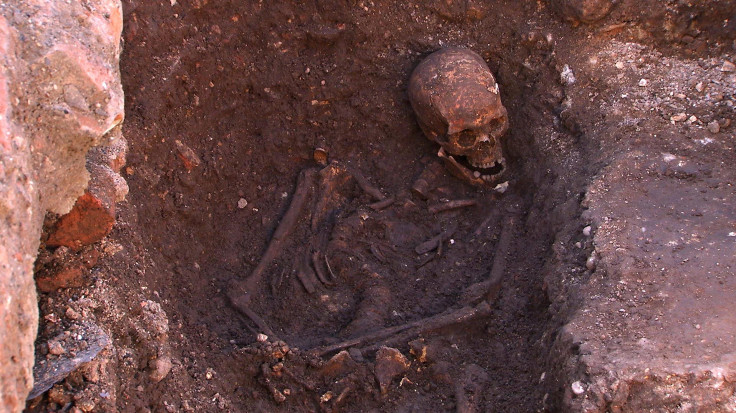Remains Of Richard III Leave University En Route To Final Resting Place For Last English King To Die In Battle

The bones of King Richard III began a ceremonial tour Sunday that was to include a stop at the site where the last English king to die in battle met his fate. The tour will end Thursday at a ceremony in Leicester Cathedral where the remains, discovered in September 2012 under a parking lot in Leicester, will be put to a final rest.
The coffin containing the royal bones left the University of Leicester, where the bones had been stored since the discovery. The coffin was brought to the village of Dadlington near the site of the battle where the king was killed while fighting to keep his crown from falling to Henry Tudor, who later became King Henry VII. On Monday, Roman Catholic Cardinal Vincent Nichols will celebrate a Mass for Richard III, and then the public will be able to view the coffin before its interment in the cathedral on Thursday.
The discovery of Richard III’s remains “reignited our interest in this period of history," Philippa Langley, who led a campaign to find the bones, told Reuters. "It's got people talking and it's got people debating and it's got people reading widely about Richard III, and realizing that there's far more to this man than people ever knew."
In the play “Richard III,” William Shakespeare famously depicted the king as a murderous, physically deformed, amoral, Machiavellian antihero who’s betrayed by everyone, including his mother. The disappearance of the monarch’s remains may have played a significant role in how he has been depicted over the centuries.
“There was no instinct really to go and find him,” New York Times reporter John F. Burns told PBS in a February 2013 interview. “And the people who buried him wanted to get rid of him as quickly as possible because the Tudors -- that is to say, the people who defeated him on the battlefield at the Battle of Bosworth in 1485 -- had absolutely no interest in giving him the honors due a king.”
Defenders of Richard III say his reign has been misunderstood. Members of Britain’s Richard III Society, for example, claim the king made court more fair and loosened restrictions on the printing press, which had been around in Europe for less than 100 years at the time of the king’s reign.
A DNA comparison to descendants of Richard’s sister confirmed the identity of the remains.
© Copyright IBTimes 2024. All rights reserved.












